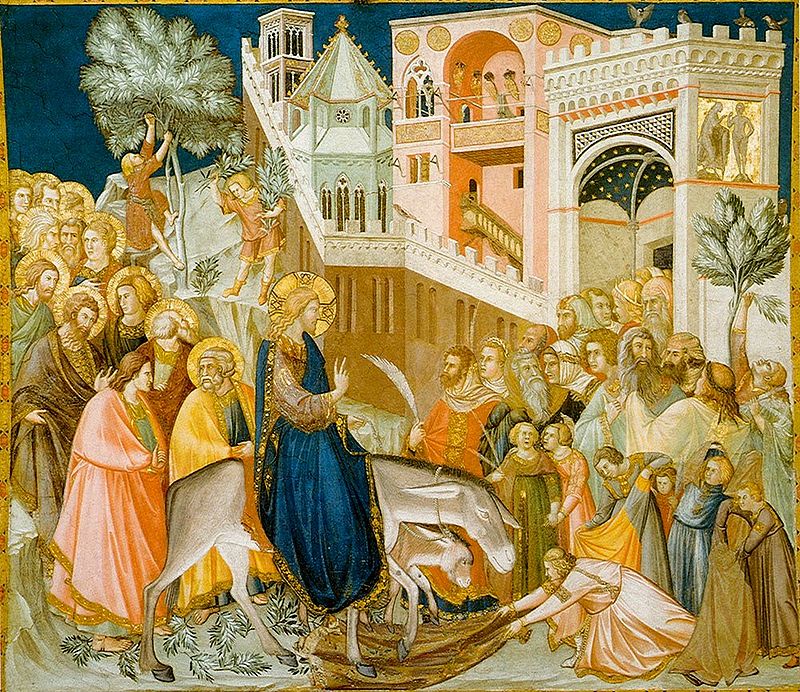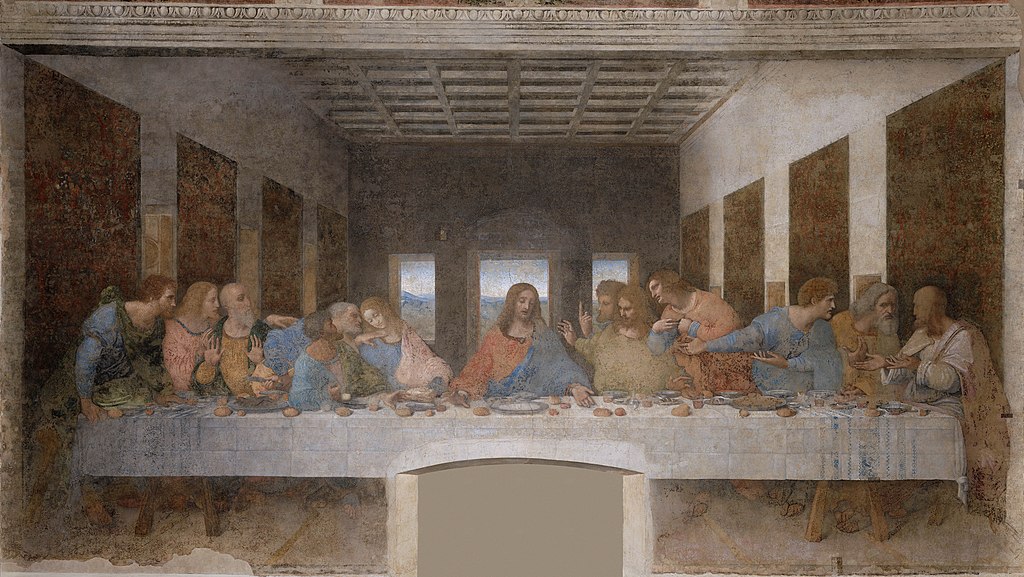Holy Week is a special time for Christians around the world. Lasting eight days, it marks the culmination of Jesus Christ’s earthly ministry, from his triumphant entry into Jerusalem to his resurrection. It’s a period for believers to reflect deeply on one of the core tenets of our faith: Jesus’ sacrifice on the cross that brought redemption to humanity by bridging the gap between man and God. During this sacred time, Christians commemorate Jesus’ final journey to Jerusalem, his teachings, his ultimate sacrifice, and his glorious resurrection.
The Foundation of Holy Week
The foundation of Holy Week rests upon the events that unfolded during the final days of Jesus Christ’s life on earth. Beginning on Palm Sunday and ending on Easter Sunday, Holy Week encapsulates the fulfilment of numerous biblical prophecies, underscoring Jesus’ role as the long-awaited Messiah. Jesus’ purposeful journey culminated in His sacrificial death on Good Friday and triumphant resurrection on Easter Sunday. Through His selfless act, Christ conquered death, offering forgiveness for our sins and granting us access to God’s presence (Romans 5:8).
The Events of Holy Week
During Holy Week, each day holds significant events that contribute to the narrative of Jesus’ final days on earth.
Palm Sunday: Jesus’ Triumphant Entry into Jerusalem
On Palm Sunday, Jesus made his triumphant entry into Jerusalem, riding on a donkey as crowds laid palm branches and their cloaks on the road before him. This event fulfilled the prophecy spoken of in the book of Zechariah:
“Rejoice greatly, Daughter Zion! Shout, Daughter Jerusalem! See, your king comes to you, righteous and victorious, lowly and riding on a donkey, on a colt, the foal of a donkey.” –
Zechariah 9:9 (NIV)

Palm Sunday serves as a powerful reminder that the reign of Christ surpasses any human understanding or scheme. While humanity sought earthly warriors to fight present battles, God had a better plan—sending His Son to triumph over death’s final hold. This is what we ultimately celebrate during Holy Week, the greatness of Christ’s sacrifice, which grants us freedom from death’s grip on us.
Monday: Jesus’ Confrontation of Corruption
After his triumphal entry into Jerusalem, Jesus and his disciples stayed the night in Bethany. On Monday of Holy Week, on his way back to Jerusalem, Jesus encountered a fig tree that had failed to bear fruit. He cursed the fig tree, symbolising God’s judgement on the spiritually dead religious leaders of Israel and emphasising the importance of genuine faith bearing spiritual fruit. This event serves as a poignant reminder that true, living faith goes beyond outward religiosity; it must manifest in a person’s life through spiritual growth and obedience to God’s will. (Matthew 21:12-22; Mark 11:12-14, 20-26).
When Jesus arrived at the temple in Jerusalem, he found the courts full of corrupt money changers. Jesus overturned the tables of the money changers and the benches of those selling doves. He declared, “My house will be called a house of prayer, but you are making it ‘a den of robbers'” (Matthew 21:13, NIV). This bold action demonstrated Jesus’ intolerance for corruption and emphasised the importance of true worship and reverence in God’s house.
Tuesday: Jesus Continues to Teach
Tuesday saw Jesus engage in extensive teaching and discourse, delivering parables and answering questions posed by religious leaders seeking to trap him in his words. Among these teachings was the famous Olivet Discourse, an intricate prophecy detailing the destruction of Jerusalem and the end of the age. Using his characteristic style of teaching through parables and symbolic language, Jesus foretold events of the end times, including his Second Coming and the ultimate judgement. Meanwhile, the betrayal of Jesus by one of his disciples, Judas Iscariot, was set in motion. Judas conspired with the chief priests to betray Jesus for thirty pieces of silver (Matthew 26:14-16). This solemn event marked the beginning of the fulfilment of Jesus’ prophesied betrayal and arrest.
Wednesday: Rest Day in Bethany
Wednesday of Holy Week is often considered a day of rest for Jesus, spent in the town of Bethany in anticipation of Passover. While in Bethany a woman anointed Jesus’ feet with perfume. This day is also known as “Spy Wednesday” within the church. As Jesus rested in the home of Mary, Martha, and Lazarus, the high priest and authorities were devising plans for his arrest and death.
Maundy Thursday: The Last Supper and the New Commandment
Maundy Thursday marks the poignant events of the Last Supper, where Jesus shared a final meal with his disciples in the Upper Room. During this meal, Jesus instituted the sacrament of communion, symbolizing his body and blood given for the forgiveness of sins. He also humbly washed his disciples’ feet, demonstrating the importance of servanthood and selfless love. Jesus concluded the evening by giving his disciples a new commandment: “Love one another. As I have loved you, so you must love one another” (John 13:34, NIV).

Good Friday: Jesus’ Betrayal, Crucifixion, and Death on the Cross
Good Friday marks the darkest day of Holy Week, as Jesus was betrayed by Judas, arrested, and unjustly condemned to death. He endured the agony of crucifixion, bearing the weight of humanity’s sin upon himself. The solemnity of this day is captured in Jesus’ final words on the cross, including his cry of anguish, “My God, my God, why have you forsaken me?” (Matthew 27:46, NIV). Yet, through his sacrificial death, Jesus provided the pathway to salvation for all who believe in him.
Black (or Holy) Saturday: Jesus’ Rest in the Tomb
On Black Saturday, also known as Holy Saturday, Jesus’ body lay in the tomb, as his disciples mourned his death and the seeming defeat of their hopes. This day represents a period of silence and reflection as the world awaited the fulfilment of God’s promise of resurrection. Though Jesus rested in the tomb, his victory over sin and death was imminent, foreshadowing the hope and joy of Easter Sunday.
Easter Sunday: Jesus’ Resurrection and Fulfilment of Prophecy
Easter Sunday, the pinnacle of Holy Week, celebrates the miraculous resurrection of Jesus Christ from the dead. As the sun rose on the third day after his crucifixion, the tomb where Jesus had been laid was found empty. This momentous event fulfilled numerous prophecies from the Old Testament, including the words of the Psalmist: “You will not abandon me to the realm of the dead, nor will you let your faithful one see decay” (Psalm 16:10, NIV). Jesus’ resurrection is the cornerstone of the Christian faith, affirming his divinity and offering the promise of eternal life to all who believe in him.
Encounters with Disciples and Establishment of New Hope
Following his resurrection, Jesus appeared to his disciples, bringing them joy and renewed hope. He revealed himself to Mary Magdalene at the tomb (John 20:11-18), to two disciples on the road to Emmaus (Luke 24:13-35), and to the gathered disciples in Jerusalem (Luke 24:36-49). These encounters solidified the reality of Jesus’ resurrection and commissioned his followers to proclaim the good news of salvation to the ends of the earth. The resurrection of Jesus Christ ushered in a new era of hope and redemption, demonstrating God’s power over sin and death and offering eternal life to all who believe in him.
Why Christians Observe Holy Week
Observing Holy Week goes beyond mere religious obligation; it’s an opportunity for our hearts to journey alongside Jesus, as we reflect on the events of this sacred week. As believers in the salvation he offers, Holy Week allows us to reflect on the depth of his love and the significance of his sacrifice for humanity. For those curious about Jesus, this week provides a unique chance to explore questions about his identity, the meaning of his sacrifice, and its impact on our lives.
As Christians, we observe Holy Week, by setting aside time to honour and glorify Jesus for the gift of life he has given us through his death and resurrection. It’s a time of reverence and devotion, as we recognize the extraordinary love displayed on the cross and the hope found in his victory over death.
Conclusion
The sacrifice of Jesus Christ on the cross and his subsequent resurrection is the foundation of the Gospel – the good news – and it has the power to transform lives. Through his death, Jesus atoned for the sins of humanity, offering forgiveness and reconciliation with God. His resurrection conquered sin and death, offering the hope of eternal life to all who believe in him. This transformative power of Jesus’ sacrifice and resurrection is not merely a historical event but a present reality that continues to shape and transform lives to this day.
In Conclusion, Holy Week profoundly impacts Christians worldwide as it commemorates the final days of Jesus Christ leading up to his crucifixion and resurrection. Through the events of Palm Sunday, Maundy Thursday, Good Friday, and Easter Sunday, we remember the central tenets of our faith: Jesus’ sacrificial love, the forgiveness of sins, and the hope of eternal life. Holy Week reminds us of the depth of God’s love for humanity and the transformative power of Jesus’ sacrifice.




